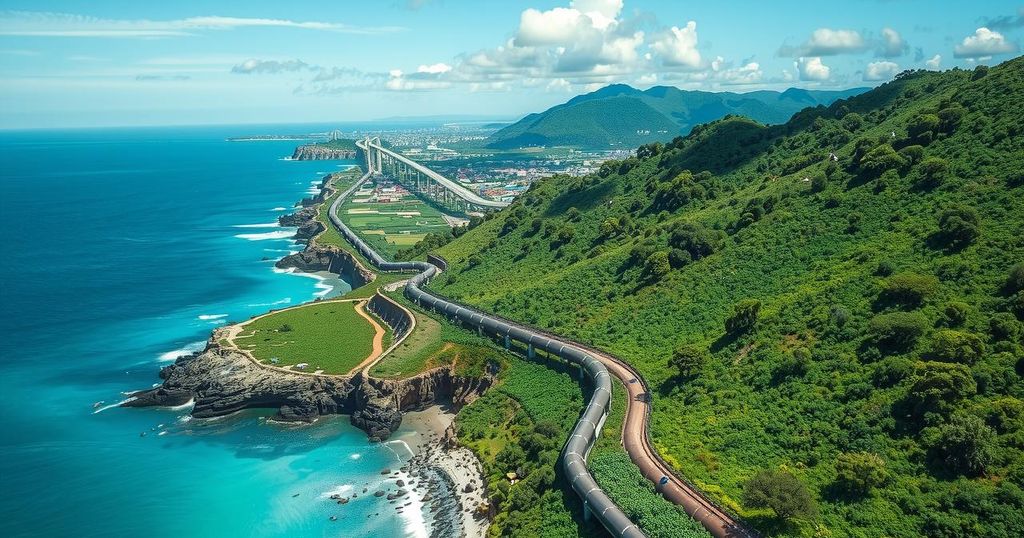Mozambique and Zambia Forge US$1.5 Billion Gas Pipeline Agreement

Mozambique has signed a US$1.5 billion deal with Zambia to construct a gas pipeline, set to transport 3.5 million metric tons annually, significantly easing traffic in the Beira Corridor. Additionally, a modular refinery project with Petromoc aims to produce 200,000 barrels of fuel per day. Recent advancements also signal a revival in LNG projects led by TotalEnergies and ExxonMobil, highlighting Mozambique’s growing energy landscape.
Mozambique has officially embarked on a significant US$1.5 billion gas pipeline project in collaboration with neighboring Zambia. This was announced following a cooperation agreement that President Daniel Chapo revealed on Wednesday morning during the proceedings of the 11th Mozambique Mining and Energy Conference (MMEC). The pipeline, spanning over 1,000 kilometers from Beira on the Mozambican coast to Ndola in central Zambia, aims to facilitate energy transportation while alleviating road congestion along the Beira Corridor, which serves as a crucial link for landlocked countries in the region.
The proposed infrastructure is projected to transport around 3.5 million metric tons of gas annually, which is a significant volume. However, details regarding financing for the project remain vague at this time. Chapo indicated that the infrastructure’s commissioning could happen within the next four years, which is ambitious but promising, considering the growing energy demands in the region.
In addition to the pipeline, Chapo announced a promising venture between Petromoc, a state-owned fuel entity, and the Aiteo Eastern E & P Group to construct a modular fuel refinery. This facility is expected to process 200,000 barrels of liquid fuel per day and boost Mozambique’s capacity to produce essential fuels, including petrol, diesel, and jet fuel. The projected completion for this refinery is within 24 months, supporting both domestic and international markets.
The President has lauded this refinery project as “transformative,” suggesting that it would significantly enhance Mozambique’s role in the liquid fuel value chain, lead to substantial job creation, and decrease reliance on fuel imports. This marks a noteworthy stride for Mozambique, as the country aims to solidify its energy position within the region.
On the liquefied natural gas front, developments continue apace as Mozambique has established itself as a central player in LNG supply chains. Recent approvals for an additional FLNG platform in the Rovuma Basin have cemented this role. The French company TotalEnergies is looking to revive a US$20 billion LNG project that had been halted since 2021 due to security issues stemming from insurgent activity in Cabo Delgado. CEO Patrick Pouyanné has expressed optimism about resuming the project by mid-2025, with hopes to mitigate the previous hardships faced.
Meanwhile, the ExxonMobil project also shows signs of revival. They are engaging Italian firm Bonatti to upgrade facilities on the Afungi Peninsula, which is crucial for housing and operations at their US$27 billion LNG initiative. This is seen as a stepping stone towards resuming full-scale operations in Mozambique’s extensive natural gas sector, which could significantly contribute to regional energy security and economic growth.
In summary, Mozambique has taken significant steps in its energy framework by signing a US$1.5 billion pipeline deal with Zambia and announcing a new fuel refinery project with Petromoc. As Mozambique strives to enhance its standing as a key supplier in the liquefied natural gas market, the recovery of previously stalled projects reflects both the challenges and the potential that lie ahead for the country’s energy sector. The upcoming years will be pivotal in realizing these ambitious infrastructure goals.
Original Source: macaonews.org








